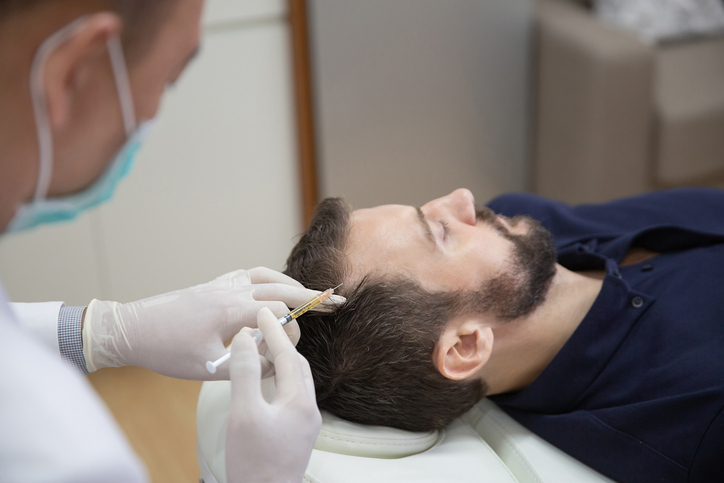Is Hair Transplant the Final Solution to Hair Loss? Is medication necessary? Before considering a Hair Transplant procedure, it is crucial to consider various factors to determine if a hair transplant is the right choice for you.
- Cause of Hair Loss: Understanding the underlying cause of your hair loss is essential in determining the suitability of a hair transplant. Hair transplants are most effective for individuals experiencing androgenetic alopecia, commonly known as male or female pattern baldness. This genetic condition results in predictable hair loss patterns and is the ideal candidate for hair transplantation. Other causes, such as autoimmune disorders or medical treatments, may require alternative treatments.
- Hair Loss Stage: The stage of your hair loss plays a significant role in determining the success of a hair transplant. Hair transplantation works best when the hair loss has stabilised. If your hair loss is progressing rapidly, it is advisable to wait until it reaches a stable phase. This allows the surgeon to assess the donor and recipient areas accurately, ensuring the best possible results.
- Donor Hair Availability: Hair transplantation involves transferring healthy hair follicles from a donor area to the balding or thinning areas. The availability of an adequate donor area is critical for a successful transplant. The most common donor area is the back and sides of the scalp, where hair follicles are less susceptible to balding. A thorough evaluation of your donor hair density and quality will help determine if you have enough viable follicles for transplantation.
- Realistic Expectations: It is important to have realistic expectations regarding the outcome of a hair transplant. While the procedure can provide significant improvements, it does not guarantee a full head of hair or halt future hair loss. Understanding the limitations of the procedure and discussing your expectations with a qualified surgeon will help you set realistic goals and ensure satisfaction with the results.
- Surgical Techniques: Different surgical techniques are involved in hair transplantation, such as follicular unit transplantation (FUT) and follicular unit extraction (FUE). Each technique has its advantages and considerations. FUT involves removing a strip of scalp from the donor area, while FUE involves individually extracting hair follicles. The choice of technique depends on factors such as the extent of hair loss, desired results, and the surgeon’s expertise. Consulting with a skilled surgeon will help determine the most suitable technique for your specific needs.
- Health and Lifestyle Factors: Your overall health and lifestyle can impact the success of a hair transplant. Certain health conditions or medications may affect your candidacy for the procedure. Additionally, factors such as smoking, excessive alcohol consumption, or poor nutrition can hinder the healing process and impact the growth of transplanted hair. Discussing your medical history and lifestyle habits with the surgeon is crucial to ensure a safe and successful procedure.
- Cost Considerations: Hair transplantation is an investment, and the cost can vary depending on factors such as the extent of hair loss, the chosen technique, and the surgeon’s expertise. It is important to consider the financial implications and weigh them against the potential benefits. While cost is an important consideration, it should not be the sole determining factor. Choosing a qualified and experienced surgeon should take precedence over cost considerations to ensure the best possible outcome.
In conclusion, hair transplantation can be an effective solution for hair loss, but it is essential to consider several factors before making a decision. Understanding the cause and stage of hair loss, the availability of donor hair, managing expectations, evaluating surgical techniques, considering health and lifestyle factors, and weighing the cost implications are crucial steps in determining if a hair transplant is a right choice for you. Consulting with a reputable surgeon specialising in hair restoration will provide the necessary guidance and help you make an informed decision that aligns with your circumstances and goals.





